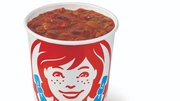Food & Beverage
Top restaurant trends place premium on home, health, purpose, price
June 5, 2020
This year, the market researchers at Euromonitor expect per capita global consumer expenditure to decline by approximately 5% and the global economy to enter the worst recession since the Great Depression, the company said in an email introducing its latest report. In the study, Euromonitor identifies six themes in this economic environment that its said are reshaping consumer goods and services, including the restaurant industry, as a result of the pandemic and its transformation of eating and living habits.
- Cultural move from sustainability to "purpose."
The company believes restaurants specifically, and the food sector more generally, will adhere to initiatives that move beyond ethical and eco-consciousness, to a more holistic approach to creating social, environmental and economic benefits. The research suggests that in the restaurant industry, food waste, animal welfare and food security will be brought to the forefront, while packaging sustainability and sustainable sourcing take a back seat, according to the report.
- The new experiential consumer and "hometainment."
Out-of-home activities will move online to virtual experiences that must give consumers as much value as in-person experiences might do. For the restaurant industry, this means meals will increasingly be brought into the home, where some consumers will find a new appreciation for cooking. As a result, it would be safe to assume that restaurant brands that play into this, will benefit. Think at-home cooking kits and even video instruction on social media and websites.
- Consumer shopping location shifts to digital.
Euromonitor predicts a "rapid shift" to e-commerce, click-and-collect options and the direct-to-consumer channel, which will increase digital disruption across consumer channels. In food service, the company sees this as a turning point for e-commerce and a boost for meal kits, though it added that this would be checked by an adverse impact on impulse channels.
- A new definition of "wellness."
Consumers will focus on the pursuit of an optimal state of health, which Euromonitor said will make the state of "happiness" an actual commercial product. This mean healthful eating – in all its forms -- will take on even more importance.
- Product innovation centers on efficiency and value.
Restaurant brands will need to align their menus with these newly highlighted needs, by emphasizing economy products, as well as some premium products that replicate the restaurant experience at home.
- Focus on four areas that are here to stay.
For consumers today, online shopping, remote living, decreased discretionary spending and self-care are the name of the game when it comes to patronizing restaurants and other businesses, so restaurateurs need to readjust their focus to align with these needs, perhaps considering packaged food options for customers.
"Even as the US economy reopens, lingering consumer concerns about health and safety and changing labor patterns will lead to a long-term reduction in eat-in dining at US restaurants, contributing to a considerable decline in consumer foodservice foot traffic across all dayparts," said Euromonitor Senior Analyst Bob Hoyler in response to a question from this website.
"The significant reduction in spending on eat-in dining occasions at restaurants will be a boon for grocery retailers, which will be the primary beneficiaries of any shift in sales away from consumer food service. U.S. residents will still need to purchase food and beverages but, with more time spent at home, spending on items intended for at-home consumption will naturally increase."
 ChatGPT
ChatGPT Grok
Grok Perplexity
Perplexity Claude
Claude








